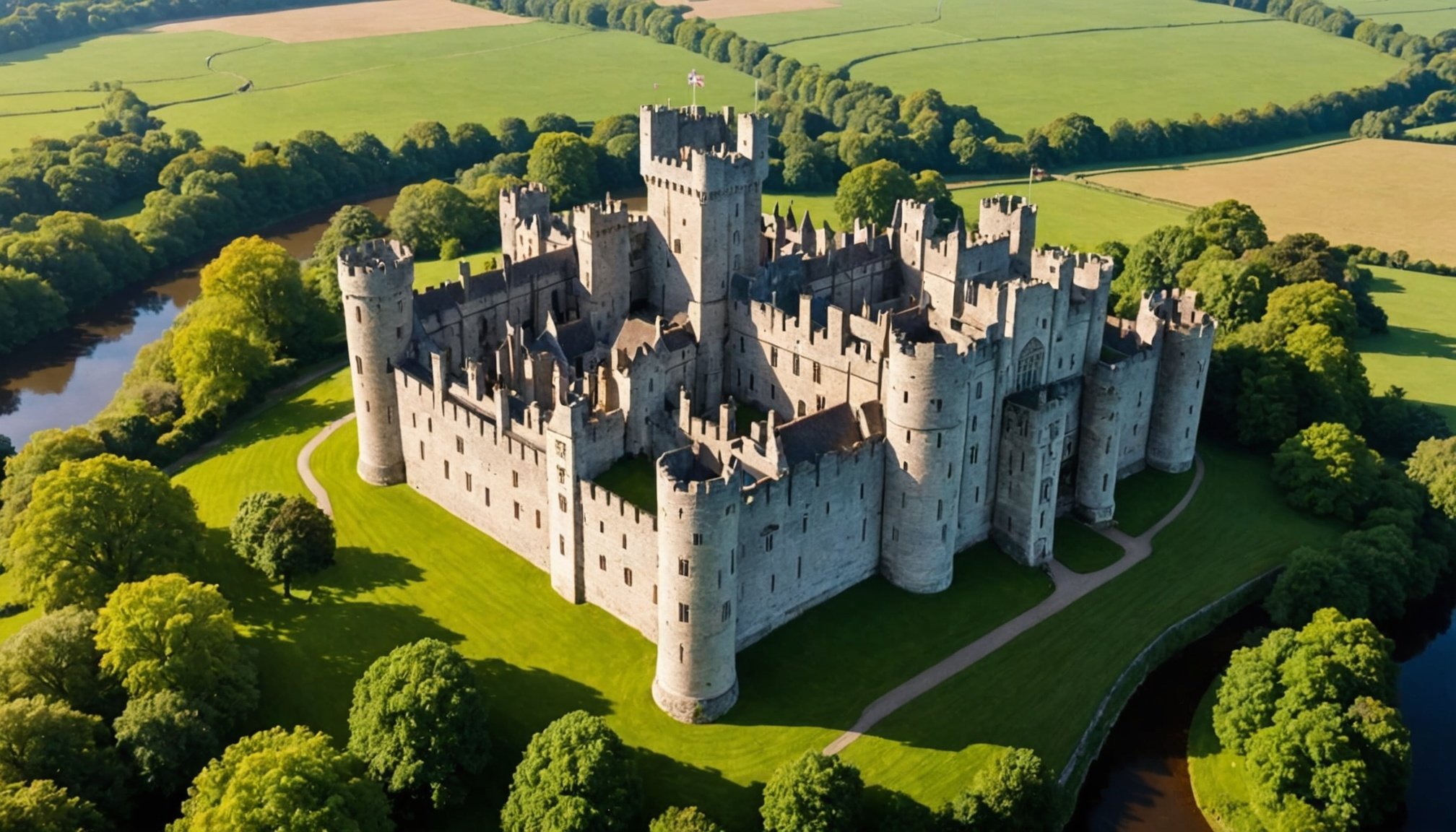Overview of Maritime Archaeology Tours in the UK
Maritime archaeology tours offer a fascinating window into the UK’s rich maritime history. These tours reveal the undersea secrets of ancient ships, coastal life, and underwater archaeology. Maritime archaeology focuses on understanding human interactions with the sea through the study of shipwrecks, harbors, and landscapes submerged by rising sea levels. This discipline is significant in the UK due to its extensive coastline and maritime heritage.
There are numerous major sites rich in historical context. The Mary Rose shipwreck is a prominent example, offering insights into Tudor-era naval warfare. Another notable site is Scapa Flow in the Orkney Islands, an underwater graveyard of scuttled German ships from World War I. Each site portrays a piece of the past, offering unique stories about historical events and daily life at sea.
Also to read : Explore the Best UK Castles for Stunning Medieval Banquets and Timeless Feasts: A Historic Culinary Adventure
Several organizations provide engaging maritime archaeology experiences. The Nautical Archaeology Society is one such entity, promoting education and conservation of marine archaeological heritage. Guided tours offered by these organizations provide opportunities to dive or snorkel at significant sites or visit coastal museums that house artifacts recovered from the deep ocean. Engaging in these tours enriches one’s understanding of the profound connection between the UK’s history and its maritime environment.
Popular Maritime Archaeology Tour Locations
Maritime archaeology tours in the UK invite enthusiasts to explore key maritime sites rich in history and intrigue. One alluring site for shipwreck exploration is the Goodwin Sands, known as the “Ship Swallower.” This area in the English Channel is infamous for countless shipwrecks over centuries, making it a treasure trove for underwater archaeology enthusiasts. Explorers can uncover such historical landmarks with guided dives, revealing the seafaring life of bygone eras.
Topic to read : Explore the Ultimate UK Hotspots: Unforgettable Guided Tours of Historic Shipyards
Another must-visit location is the historic coastal town of Portsmouth, home to the iconic Mary Rose Museum. Here, visitors can delve into the Tudor navy’s past and witness artefacts brought to life from the depths. Coastal museums like this offer rich narratives and detailed insights into maritime heritage, without getting wet.
For those intrigued by World War maritime history, Scapa Flow offers an entirely different perspective. Located in the Orkney Islands, it is a natural harbour used during both World Wars, now an awe-inspiring site of sunken German battleships. Accessing Scapa Flow requires planning, but several tours ensure that even remote sites remain accessible through structured itineraries. Each location presents unique themes, enhancing understanding of the UK’s maritime legacy.
Planning Your Medieval Castle Tour
Planning a medieval castle tour in the UK? Here’s how to orchestrate an unforgettable journey through UK heritage sites. When organising your trip, consider the ideal season—spring and autumn offer pleasant weather and fewer crowds. Tour logistics are vital; book entrances and accommodations well in advance, particularly for famous castles like Windsor and Edinburgh.
Travel arrangements are crucial for a smooth tour experience. Consider renting a car for flexibility or use trains for scenic routes between historical tours. Public transport links major cities, making it a viable option for urban castles.
Visitor information is key to enhancing your adventure. Pre-purchased tickets can save time, especially at popular sites. Many castles offer guided tours providing insider insights into medieval life and architectural features. Look for special events like medieval reenactments to enrich your visit.
Additional attractions near castle locations can add depth to your itinerary. Pair your castle visits with local museums or historical villages. Nearby dining suggests enjoying local British cuisine, rounding off each day with a delightful taste of history. With thoughtful planning, a medieval castle tour is a memorable dive into the rich UK heritage sites.
Combining Maritime Archaeology and Castle Tours
Embarking on an integrated journey combining maritime archaeology and medieval castles presents a unique opportunity to dive deeply into the UK’s cultural heritage. Why choose between the allure of the underwater realms and the grandeur of castles when both can enrich your understanding of history? This thematic blend offers a tapestry of exploration, intertwining nautical narratives with noble heritage.
Benefits of Combining Experiences
- Encompassing both themes allows travellers to appreciate the interconnectedness of environments: while maritime archaeology reveals life at sea, castles illustrate terrestrial dominance.
- Itineraries merging these experiences make excellent use of travel time, providing a well-rounded view of the UK’s historical intricacies.
Suggested Itineraries
- Begin with the Goodwin Sands shipwrecks, then venture to nearby historical castles for a seamless transition from sea to land.
- Scapa Flow’s naval stories pair well with Orkney castles, offering a dual exploration of maritime strategy and defensive architecture.
Experts in maritime and medieval history often highlight overlapping stories, such as towns thriving from maritime trade that contributed to the affluence reflected in castle construction. Tours weaving both elements together afford an invaluable experiential lens on how the UK’s maritime and land-based histories are intertwined. Plan a trip that satisfies both the historian and adventurer in you.
Planning Your Medieval Castle Tour
Embarking on a medieval castle tour in the UK is a delightful journey through time, offering rich insights into UK heritage sites. When planning your tour, consider the ideal season. Spring and autumn are best, providing pleasant weather and fewer crowds, enhancing your historical experience.
Organising your tour logistics is crucial. Book entrances to popular sites such as Windsor and Edinburgh castles well in advance, as they attract numerous visitors. Similarly, accommodations should be reserved early to ensure convenient proximity to your chosen tour sites.
Travel arrangements are vital for a smooth and enjoyable experience. Renting a car offers flexibility, allowing for spontaneous exploration. Alternatively, utilise the UK’s excellent train network, which connects major historic locations and offers scenic views of the countryside. Public transport is a viable option for urban castles, seamlessly linking you to key sites.
Ensure you gather visitor information before your trip. Pre-purchasing tickets not only saves time but also guarantees entry to crowded attractions. Many castles provide guided tours, enriching your visit with insider insights into medieval life and architectural marvels.
Consider nearby additional attractions to enrich your journey. Pair castle tours with local museums or historical villages, and indulge in British cuisine at nearby dining spots, rounding off each day’s exploration with a delightful taste of history.
Planning Your Maritime Archaeology Tour
Embarking on maritime archaeology tours in the UK requires careful planning to ensure a fulfilling experience. Here are essential tips and suggestions.
Key considerations begin with selecting the right tours. Pay attention to duration and seasonality; some sites are best visited in optimal weather conditions, enhancing underwater visibility and safety. Spring and summer are generally favourable seasons.
Itinerary suggestions are crucial for a comprehensive exploration. Start with iconic sites like Goodwin Sands for an intriguing shipwreck exploration, followed by a visit to coastal museums in Portsmouth. These experiences offer a blend of underwater archaeology and UK maritime history narratives.
For travel tips, consider accommodations nearby key maritime sites. Coastal towns often provide charming stays and local dining, offering fresh seafood to enrich your culinary experience. Explore options such as lodging in Orkney to be close to Scapa Flow’s historical landmarks.
When arranging logistics, renting a car may offer flexibility and ease of movement between dispersed locations. However, public transportation is another viable, scenic option for reaching coastal destinations.
By carefully planning and adhering to these suggestions, you can maximise your maritime archaeology tour, deeply immersing yourself in the captivating tales of UK maritime history.
Expert Recommendations and Resources
Exploring the UK’s cultural heritage through maritime archaeology and medieval castles can be enriched with expert guidance. For enthusiasts seeking an immersive experience, insights from specialists in maritime archaeology and medieval history offer invaluable perspectives.
Experts emphasize planning with defined itineraries that capture the essence of both maritime and land-based heritage. To this end, engaging professional tour companies with expertise in themed tours can greatly enhance your experience. Companies specializing in integrated experiences ensure that the narrative of UK history is woven seamlessly through both maritime and castle tours, offering a holistic exploration.
Notable resources include curated book lists and documentaries focusing on pivotal historical events related to shipwreck exploration and medieval castles. Websites dedicated to UK heritage can also provide up-to-date information and interactive insights into significant historical contexts.
For those interested in diving deeper independently, maritime archaeology tour guides and resources recommended by travel experts can serve as guides. These materials assist travelers in comprehensively understanding the history and significance of sites visited. Utilizing these resources ensures not only educational engagement but also meaningful interactions with the UK’s rich historical landscapes.
Notable Medieval Castles to Explore
Medieval castles stand as magnificent testaments to the UK’s rich historical tapestry, each offering a glimpse into the past. Among the most iconic are Windsor Castle and Edinburgh Castle, both boasting a wealth of history and architectural splendor.
Windsor Castle dates back to the 11th century and has been an enduring residence of the British monarchy. Tourists can witness the lavish State Apartments and the esteemed St. George’s Chapel, known for its Gothic architecture. Special events, such as the Changing of the Guard, provide captivating glimpses into royal traditions.
Edinburgh Castle, perched atop Castle Rock, tells stories of royal intrigues and battles. Visitors can marvel at the Crown Jewels and the Stone of Destiny, integral to Scottish coronation ceremonies. The castle frequently hosts military tattoos, treating guests to a blend of music and historical reenactments.
For a comprehensive experience, guided tours are recommended. Expert guides offer rich insights into each castle’s unique history, aiding in understanding their roles in shaping UK heritage. Visitor tips include purchasing tickets in advance to avoid long queues and considering the addition of nearby cultural experiences, such as town tours or local gastronomy, to enrich your journey through history.











